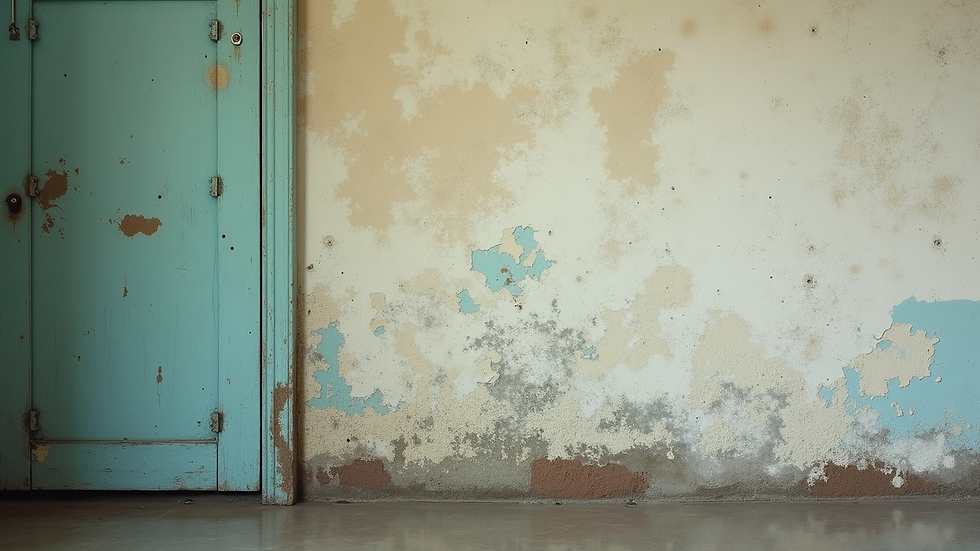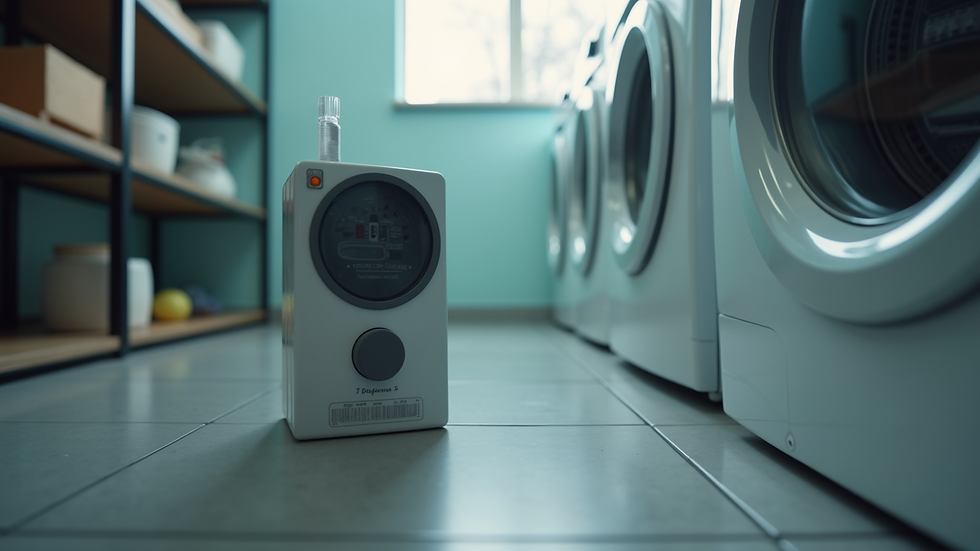Signs You Might Have a Hidden Leak in Your Home
- iamckovid
- Jul 28, 2025
- 4 min read
Water leaks in your home can cause serious damage if left unnoticed. Many leaks are hidden behind walls, under floors, or in other out-of-sight places, making them difficult to detect early. Recognizing the signs of a hidden leak can save you money, prevent structural damage, and keep your home safe. This guide will help you identify common indicators of hidden leaks and provide practical advice on what to do next.
Unexplained Increase in Water Bills: A Key Sign of Hidden Leaks
One of the first signs that you might have a hidden leak is a sudden or gradual increase in your water bill without any change in your water usage habits. Even a small leak can waste hundreds of gallons of water over time, which will reflect in your monthly bill.
Check your water meter: Turn off all water fixtures and appliances, then observe the water meter. If it continues to move, it indicates water is flowing somewhere in your system.
Compare bills: Look at your water bills over the past few months. A consistent rise without increased usage is a red flag.
Look for seasonal patterns: Sometimes leaks worsen during certain seasons due to temperature changes causing pipes to expand or contract.
If you notice an unexplained spike, it’s wise to investigate further or contact a professional for leak detection.

Visible Signs of Water Damage Around Your Home
Hidden leaks often manifest as visible water damage in various parts of your home. These signs can appear on walls, ceilings, floors, or even in your basement.
Stains and discoloration: Yellow, brown, or dark spots on walls or ceilings often indicate water intrusion.
Peeling paint or wallpaper: Moisture behind walls can cause paint or wallpaper to bubble, peel, or crack.
Warped or buckled flooring: Wood or laminate floors may warp or swell when exposed to moisture.
Mold and mildew growth: Persistent dampness encourages mold growth, which can appear as black, green, or white patches.
Musty odors: A damp, earthy smell often accompanies hidden leaks and mold.
If you spot any of these signs, it’s important to act quickly to prevent further damage.

Do Water Leak Detectors Really Work?
Water leak detectors are devices designed to alert homeowners to the presence of water where it shouldn’t be. These gadgets can be invaluable tools in identifying leaks early, especially in hidden or hard-to-reach areas.
How they work: Most detectors use sensors that trigger an alarm or send notifications when they come into contact with water.
Placement: Common locations include under sinks, near water heaters, behind appliances, and in basements.
Types: Some detectors are standalone units, while others integrate with smart home systems for remote monitoring.
Limitations: While effective for detecting leaks at the sensor location, they cannot detect leaks inside walls or underground pipes without additional equipment.
Using water leak detectors can provide peace of mind and help catch leaks before they cause major damage. However, for comprehensive leak detection, professional services may be necessary.

Other Common Signs of Hidden Leaks
Besides water bills and visible damage, there are other subtle signs that may indicate a hidden leak in your home.
Sound of running water: Hearing water running when all taps are off can suggest a leak.
Damp or soggy ground outside: If the soil near your foundation or yard is unusually wet, it could be from a leaking underground pipe.
Cracks in foundation or walls: Water leaks can cause soil movement, leading to structural cracks.
Low water pressure: A leak can reduce water pressure in your faucets and showers.
Pooling water or puddles: Water collecting in unexpected places indoors or outdoors is a clear warning.
If you notice any of these signs, it’s important to investigate promptly to avoid costly repairs.
What to Do If You Suspect a Hidden Leak
If you suspect a hidden leak, taking immediate action can minimize damage and expenses.
Inspect visible plumbing: Check under sinks, around toilets, and near appliances for drips or moisture.
Monitor your water meter: Use the water meter test to confirm if water is flowing when it shouldn’t be.
Use water leak detectors: Place detectors in vulnerable areas to catch leaks early.
Contact a professional: For thorough leak detection, hire a licensed plumber who can use specialized tools like thermal imaging or acoustic sensors.
Repair promptly: Once the leak is located, arrange for repairs immediately to prevent further damage.
Taking these steps can protect your home and save you money in the long run.

Protect Your Home with Regular Leak Inspections
Regular inspections and maintenance are key to preventing hidden leaks from causing serious problems. Schedule routine checks of your plumbing system, especially if your home is older or has experienced previous leaks.
Seasonal checks: Inspect pipes before winter to prevent freezing and bursting.
Appliance maintenance: Regularly check hoses and connections on washing machines, dishwashers, and water heaters.
Upgrade old plumbing: Replace aging pipes and fixtures to reduce leak risks.
Install water shut-off valves: These can help quickly stop water flow in case of a leak.
By staying proactive, you can maintain a safe, dry, and healthy home environment.
Hidden leaks can be costly and damaging, but knowing the signs and acting quickly can save you from major headaches. Keep an eye on your water bills, watch for water damage, and consider using water leak detectors to catch problems early. When in doubt, professional leak detection services are your best bet for peace of mind and effective repairs.


.png)

Comments